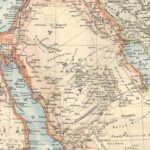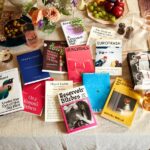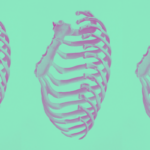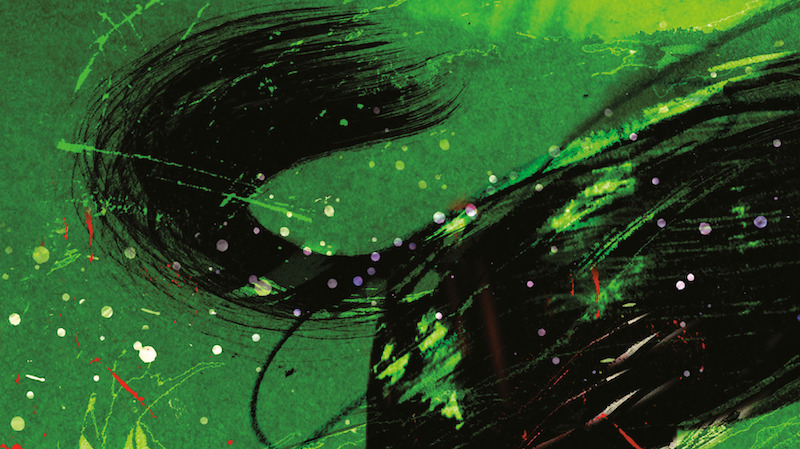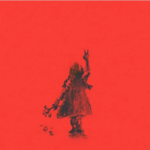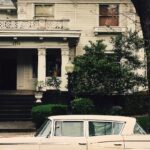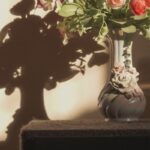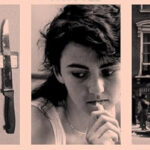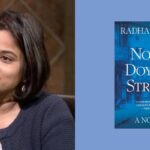On the Fringes of Bogotá: A Reading Unlike Any Other
Eduardo Halfon Takes Questions (and Comments) From a
Group of "Throwaways"
People call them Throwaways because they’re good for nothing. I met them on my last afternoon in Bogotá, in an industrial zone called Puente Aranda, under an airy, almost invisible drizzle that wasn’t enough to get anything wet.
I had been in Bogotá for a week, counting the days until I could go home to Nebraska, where my son was about to be born, and taking part in so many library and bookstore events that they were starting to blend into one. The same audience. The same topics. The same questions. And not only the same questions, but my same answers. Mechanical, worn-out answers I’d polished and practiced until I knew perfectly well which one would spark a laugh, or empathy, or silence. Over the years a writer develops a spiel that doesn’t just prop up his work but also his whole reason for being a writer. He perfects the foundational myth (how he started writing: by accident, to save his life), the slightly eccentric details of the daily routine (writing every morning, in solitude, cat next to the keyboard), the false modesty (really, deep down, he has no idea how he does what he does), the cynical-writer pose (hand on forehead, legs crossed, a humble but at the same time deep, self-assured look, half closing his eyes). Thing is, sitting down and trying to express an idea or an emotion or a story in words is not the same as being on tour later and trying to explain those words, trying to give them meaning or at least a semblance of order. Writing is not the same as being a writer.
We were headed by car to Puente Aranda. I was sitting in the front seat next to a friendly driver in his fifties named Fredy—no, Fredy, he’d firmly corrected me when I’d met him in the hotel lobby and called him Alfredo—who over the course of an hour in traffic had been showing me various spots around the city. The hill of Monserrate. The old city, La Candelaria. The newlyweds park. The best spot, in his opinion, to buy arepas with eggs. The best nightclub, in his opinion, in Chapinero. A very tall building, still under construction, called Bacatá, a word from the Muisca or Muysccubun language—it wasn’t quite clear to me—the origin, he said, of the name Bogotá. He told me that Puente Aranda was mainly industrial now, and it was called that because of a bridge built there centuries ago on the hacienda of a landowner named Aranda. The bridge isn’t there any more, he said.
Never mind Don Juan Aranda. But he and his bridge are still with us, he said with a smile. At least in name.
He parked in front of a badly painted, cream-colored, two-story commercial building and turned off the engine. I asked him if the public library was nearby. That’s it right there, he said, pointing to the tinted glass door of one of the building’s storefronts. That’s the public library? I asked, noting the black iron bars behind the glass. I’ll come with you, Fredy said, opening his door. I told him not to worry, there was no need, I could go in myself. In this neighborhood, he said, it’s better if I come with you.
*
The coffee was chocolaty and strong and the porcelain cup felt good in my hands. More than coffee, I wanted a cigarette. I don’t like drinking coffee in the afternoon. But they told me I had to have one, because this was the best coffee in Puente Aranda. Delicious, isn’t it? the guy in charge of the event asked me. His name was Andrés. He couldn’t have been thirty. He’d come out to greet me on the street before I could go in, to tell me we still had a few minutes to go have coffee. I told him sure, why not. The coffee’s famous here, said Fredy, who’d accepted the invitation to come along. There was a fake carnation in the middle of the table, and a plate of almond and ginger cookies. The steady drizzle was now a pleasant breeze coming in through the open door of the café.
Óscar Javier saved my life, said another man, looking down, his whole posture sunken, as if he were melting into the floor.Andrés suddenly raised his hand in the air slightly, as if to take an oath or request the floor. I wanted to talk to you before the event, Eduardo, he said, and I took a long sip of coffee, anticipating the same agenda as ever, the same questions as ever. I wanted to tell you, he continued, that the whole audience today will be street people. I set my cup down slowly. They’re all from the Óscar Javier Molina Self-Care Center for the rehabilitation of drug addicts, he said. I hope that’s all right with you.
You mean they’re homeless? I asked. That’s right, he said, but here we also call them street people. Or throwaways, Fredy muttered after taking a sip of coffee. Because they’re good for nothing.
*
The devil’s smoke, said one man, and it occurred to me, seeing how his shirt and canvas pants hung from his body, that he was wearing the clothes of somebody bigger and heavier, or that maybe these were his clothes but he’d become a skeleton of his former self. That’s what they call crack here, he said. The devil’s smoke. I was fifteen when a guy in the Bronx gave me some, and that’s where I stayed. I only left the Bronx to hustle spare change or to steal. Almost always over to Caracas, or maybe Tenth Avenue, or Nineteenth, or Thirteenth. Then I’d go back to the Bronx and sell whatever I had stolen to the shop stalls in the market and head right out to buy crack at one of the taquillas. At the Mosquito, or the National, or the Purple House, or the Fire Hose, or the Stairs, or the América, or the Homero, the one that got its name from Homer Simpson.
*
What could you tell me today, as a writer, that would help me out?
*
So I started hanging around the Bronx, said an older man, or at least a man who looked old, with a graying, unkempt mustache. As he spoke from his plastic chair, he pressed his hands together, one palm against the other, as if he were praying. The Bronx, he said, just so you understand, is a rundown place in the center of Bogotá full of addicts, alcoholics, drug dealers of every kind, thieves, gun traders, knife sellers, small-time delinquents and also big shots. The whole Bronx is only three square blocks, but they’re the most watched-over three blocks in the whole country. One block away there’s the Army Recruitment office, two blocks away are the Metropolitan Police headquarters and the Judicial Police, and seven blocks east there’s the Office of the President. Even God himself watches over the place, he said with a smile. From the back, he said. From the Basilica of the Sacred Heart of Jesus.
*
Is writing, for you, like praying?
*
For years my life had one purpose, said someone else. Recycling, stealing, harassing, smoking crack, sniffing glue, doing weed and other drugs. Eating or drinking water didn’t matter to me. Just getting drugs. Anything to get drugs.
*
Do you think that taking drugs can help a writer?
*
I met Óscar Javier Molina, said another man, in the slum called El Cartucho, back before the authorities tore it down and it turned into the Bronx, and also before he got clean and left the street. Though really he never left it. He stayed right here on the street, in the slums, helping anybody who needed help. We pay our respects to Óscar Javier in the Self-Care Center that we’re part of. It’s named after him now.
*
Who do you pay respects to when you write?
*
I’m from a town called Ocaña, said a teenager. But now home is wherever night catches me. Sometimes San Bernardino, or Quiroga, or the Five Hollows. But I got into drugs down in Diana Turbay, which is a slum on the south side, in Rafael Uribe Uribe. Go figure, a slum in this city named after that famous journalist who got kidnapped and assassinated in the 70s (Gabriel García Marquez told her story in News of a Kidnapping, Andrés whispered to me). So that’s where I got into crack, in Diana Turbay. But before, when I was a kid, I wanted to be a musician, he said. I liked rock.
Just like Óscar Javier.
*
If you didn’t have food or money or a house, would you keep writing?
*
Óscar Javier saved my life, said another man, looking down, his whole posture sunken, as if he were melting into the floor. As soon as he began to speak, he took off his baseball cap and held it in his hands. He’s the one who got me out of the Bronx, when things started getting hot in there. He kept going in to do his social work, in spite of the threats and the garbage they’d rain down on him from the open windows. The poor guy would have to take cover under a bridge or some market cart. Six years he spent working in there. He’d bring bums like us a plate of hot food or help us with our health care or move us into a house. He knew this hellhole inside out, and he knew from experience it was possible to leave it. Brother, he’d tell me, if I could do it, so can you. Look at me, brother, it’s possible to change. That’s what he’d say. But the bosses in the Bronx didn’t like Óscar Javier taking away their clients. One night a couple of hit men came into his house in La Aurora and put three bullets in his head.
*
What would you say is your hell?
*
Sayayines, they call them, said another man. One was named Lalo. Another one was El Negro. Another one they called Valderrama, like the futbolista with the crazy long hair. Another one, don Saúl, is the guy they say ordered the killing of Óscar Javier. A sayayin in the Bronx is like a soldier, somebody who controls things inside. Security. Prostitution. The gun trade. The crack houses. The dealers who sell the drugs, and the hit men who collect on the drug addicts’ debts. They say that if an addict didn’t pay up, Don Saúl would disappear his body by grinding up and smoking his bones.
*
Do you think somebody can write honestly about a man’s death if he’s never seen a man die?
*
A few hours before they killed him, said a man from the back of the room, Óscar Javier gave me some sugar cane tea. It was a Saturday. They say that that morning, while Óscar Javier was setting up a free outdoor barbershop for the residents of the Bronx, four guys came up and started throwing eggs and bags of shit at him, warning him to never come back. Óscar Javier went to clean himself up at a preschool nearby and then he returned to the Bronx and handed out sugar cane tea to some of us. That same night they killed him in his house. He was forty years old.
*
The Survivor. That’s what some of us who were his friends called Óscar Javier.
*
I wanted to be Nadia Comăneci, said a woman, smiling as if in pain. That’s what I’d tell myself, as a girl growing up in Muzú, because I liked gymnastics and I liked Nadia Comăneci. But when my mother died I got caught up in drinking and drugs and that’s where I still am today. Because an addict never stops being an addict. You can get clean, you can stop doing drugs, but you’ll always be an addict. I’m sixty years old, and I ask you not to forget us. That’s all I ask.
*
And you, as a writer, what advice would you give a drug addict?
*
It was already late afternoon. The light drizzle was still falling. We were all standing in the street, smoking in the semi-darkness, waiting for the bus that would take them back to the Self-Care Center. They invited me to visit the next day, to see how they lived and worked there, and I told them that the next day I was flying back home to Nebraska, where my son was about to be born, but I’d do what I could to get there before I left for the airport.
Someone suggested we ought to take a group photo. I tossed my cigarette into the street and we started forming up in front of the barred-up library door, some stooping in front and others standing in back. I was in the center, surrounded and guarded by all of them. One of the young guys stood apart from the group and said he didn’t want to be in the photo, and none of us managed to talk him into it (later, Andrés explained to me that it was because he was embarrassed about the condition of his face). From a distance, Fredy watched us with scorn, or maybe impatience. And we were all in our places and ready to smile when everything went silent. A hard silence, after so many words, as if words were air and the world was a deflated balloon. And while I tried to smile in the midst of this silence, standing in the almost invisible rain, I could only think that every one of them was once somebody’s son or daughter, that every one of them was once somebody’s newborn baby, that every one of them was once lulled to sleep with all the love of a father or a mother holding a new life in their arms, a life filled with light, a life just beginning.




